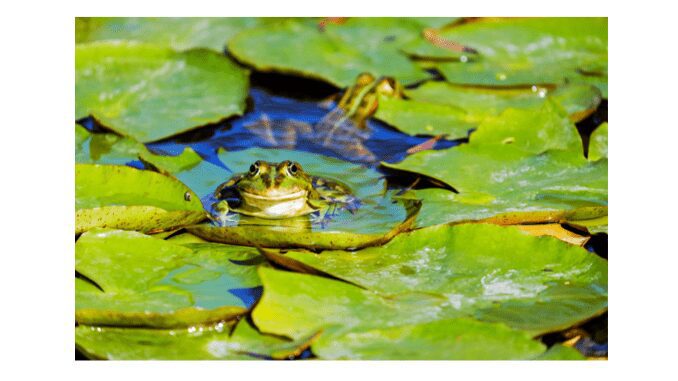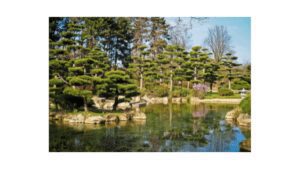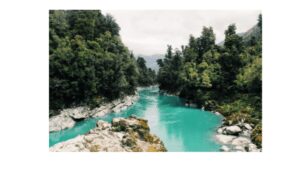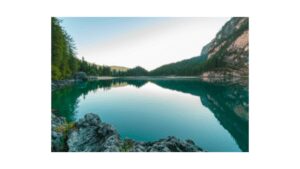
Introduction
Our planet is covered by more than 70% of water which makes up around 3/4 of the area. Water is very important in everyday life in fact water is life. The nature of this water can be either fresh or salt. There are different types of water bodies. Often the bodies of these reservoirs differ from one to the other as their boundaries. This water is the habitation of the smallest aquatic organisms from the largest aquatic organisms. The bodies of water can be seen on the earth in the form of a sea, waterfall, river, pond, and lake. Each water body has its own properties and functions. There are 3 types of water bodies are described below (1). the following article is about ponds, lakes, and rivers and the major difference between pond and a lake and river.
Pond

The word pond comes from “pound”, which means confining enclosure. A pond is a stable small reservoir, made up of freshwater, which size is smaller than a lake, which is created by nature or human excavation. (1)
Characteristics of pond
1. The pond is a kind of stable freshwater body.
2. It is smaller in size than the lake.
3. Ponds are natural or artificial.
4. It is different from a river or stream as the water in the pond is stagnant and is not flowing.
5. The depth of a pond is about 1.8 meters. Depending on the depth of the water, sunlight can enter the bottom of most ponds.
6. The shape and size of a pond depend upon its type of origin. Like naturally made ponds are of any size, but man-made ponds are almost quadrangular in shape.
7. Pond water is relatively hotter than river water for stabilization.
8. The amount of oxygen in the deep bottom of the pond is low. The bottom of the pond is covered with silt (1).
Importance of pond
Ponds are a habitat for many aquatic organisms. These ponds are nowadays becoming extinct due to human activity. Ponds work as mini reservoirs that help drain the fields during the rains. It recycles nutrients and reduces the amount of nitrate and phosphate. Ponds are important not only for quenching thirst or providing shelter but also for enhancing the beauty of nature. Therefore, the conservation of ponds is very important for maintaining the ecosystem of different species in the ponds and maintaining the balance of nature (1).
River

Depending on the slope of the land, a normal stream, which flows over the surface, falls into a lake, sea, or any other water stream, which is nourished by ice or rainwater, is called a river (2)
Examples: Nile, Amazon, Ganga, Mississippi, etc.
Characteristics of the river
1. Rivers are created by nature and their waters are flowing.
2. The water in the river is fresh
3. A river flows from top to bottom according to the land slope.
4. The stream of the river flows over the surface.
5. Water in the river is nourished by ice or rainwater.
6. The river falls into any lake or sea.
7. A river has many distributaries (a stream of water flowing from the main river) and many tributaries (mixed streams in the main river) (2) & (3).
Importance of river
The importance of rivers in the history of human civilization is undeniable. In the past, various river-centric civilizations (Egyptian civilization centered on the Nile) were formed. Many cities, towns, and villages were built near the river as it is the only means of transportation. Polyamide is deposited on two banks of the river during floods so the soil is fertile which is suitable for agricultural purposes. At present, the river is getting polluted due to various reasons. As a result, the river ecosystem is being destroyed. So rivers should be protected from pollution at present, for their important contribution to human life (2).
Lake

The lake which is a Latin word comes from the word “lacus”. A lake is a large body of water formed by the accumulation of rainwater, river water, glaciers, molten water, or seawater in a naturally formed, degraded part of the land (2).
Examples: the Caspian Sea, Lake Superior, Lake Victoria, etc.
Characteristics of lake
1. Lakes are formed naturally. The lake is like a pond, but larger in size.
2. A lake is generally formed by rainwater, river water, glacier water, and seawater.
3. Lakes are surrounded by land. The size of the lakes is much larger.
4. The water in the lake is either fresh or salty.
5. The lake is formed at any height from sea level (2) & (3)
Importance of lake
Lakes play a very important role in human life. It helps in controlling the flows of rivers and restocking groundwater. Lakes are commercially important as a source of fish and minerals and in other ways (1).
Difference between a pond and a lake
Ponds and lakes are very similar, but there are some differences. The difference between a pond and a lake is described below (2) & (3)
Properties |
Pond |
Lake |
| 1. Size | The pond is smaller in size than the lake. | The lake is larger in size than the pond. |
| 2. Depth | The depth of the pond is less. | The depth of the lake is greater than that of the pond. |
| 3. Water type | The water of the pond is fresh. | The water of the lake is fresh or salt. |
| 4. Wave | There is no wave in the pond water. | There are waves in the water of the lake. |
| 5. Creation | Ponds are created by nature or human excavation. That is the ponds are natural or artificial. | Lakes are created by nature. That is, the lakes are natural. |
| 6. Sunlight | Due to the low depth of the pond, the sunlight can reach the bottom of the pond. | Due to the depth of the lake, the sunlight cannot reach the bottom of the lake. |
| 7. River or sea combination | There is no connection between the river or sea with the pond. | There is a connection between the river or sea with the lake. |
| 8. Shape | Naturally-made ponds are of any size, but man-made ponds are almost quadrangular in shape. | Lakes are created by nature as they are shaped differently. |
Difference between a pond and a river
The water of the ponds and rivers is fresh. But there are some differences between them. These are (1)
Properties |
Pond |
River |
| 1. Creation | Ponds are created by nature or human excavation. That is the ponds are natural or artificial. | Rivers are created by nature. That is the river is natural. |
| 2. Nature of flow | A pond is a kind of stable water body. The water body in the pond cannot flow. | The water body of the river is flowing. |
| 3. Depth | The depth of the pond is less. | The depth of the river is greater than the pond. |
| 4. Slope of flow | Ponds cannot flow according to the land slope because their water remains constant. | The river flows from top to bottom according to the land slope. |
| 5. Wave | There is no wave in the pond water. | There are waves in the water of the river. |
| 6. Source of water | Rainwater is the only source of pond water. | The source of river water is ice meltwater or rainwater. |
| 7. Distributaries and tributaries | There are no Distributaries and tributaries of ponds | A river has many distributaries and many tributaries. |
Similarities between river and lake
Before discussing the differences between rivers and lakes, some similarities between the two are described below (2) & (3)
1. Rivers and lakes both are created by nature.
2. Both the river and the lake are large in size.
3. There are waves in the river and lake water.
Difference between river and lake (2) & (3)
Properties |
River |
Lake |
| 1. Slope of flow | The river flows from top to bottom according to the land slope. | The lake water is stable, so the land slope has no effect here. |
| 2. Falling place | A river’s stream falls into any lake or sea. | A lake’s stream may fall into any river or sea. |
| 3. Surrounding structure | The boundary of the rivers is not bounded by the land | The lakes are surrounded by land. |
| 4. Water type | The water of the river is fresh. | The water of the lake is fresh or salt. |
| 5. River or sea combination | A river’s stream falls into any lake or sea. So there is a connection between the sea with the river. | There may be a connection between the river or sea with the lake. |
| 6. Distributaries and tributaries | The river has many distributaries and many tributaries. | There are no Distributaries and tributaries of lakes. |
| 7. Nature of flow | The water body of the river is flowing. | A lake is a kind of stable water body. The water body in the lake cannot flow or have a slow speed |

What does this mean? There is a connection between the river or sea with the pond. There is no connection between river or sea with the lake.
Aren’t the great lakes connected to the ocean? Don’t most ladies good into rivers or over same to the sea?
Hello Brian…yes you are right regarding the lake and river connection..thaks for highlighting we will correct this point soon…